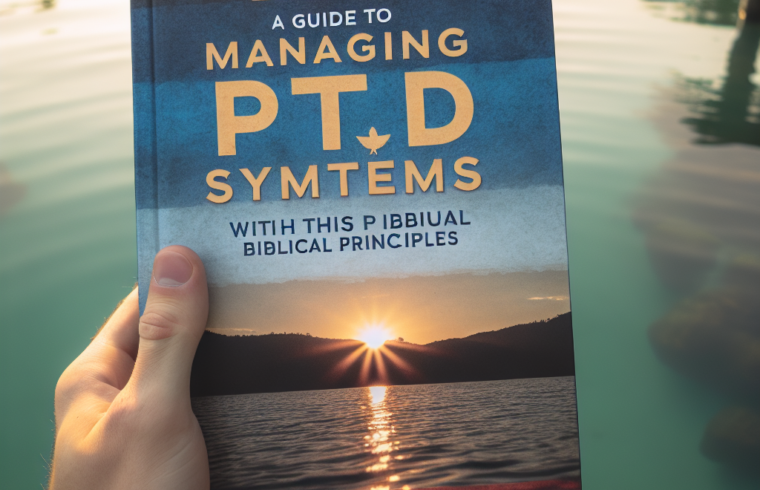==> Thank you for reading this post! Click Here If you are looking for support and Victory over PTSD.
Finding Peace Through Prayer
Establishing a Daily Prayer Routine
When I first began to navigate my PTSD, I found solace in the simple act of prayer. Setting aside a few moments each day to connect with God not only calmed my racing thoughts but also grounded me in faith. Developing a routine felt almost ritualistic; it created a time and space where my worries could be laid down. I started small, often just five minutes of quiet reflection and heartfelt conversation with God, and it soon became a cherished part of my day.
After a while, I realized that the consistency of prayer became a safe harbor amidst my emotional storms. I often found myself returning to favorite Biblical passages during these moments, like Philippians 4:6-7, reminding me to cast my anxieties aside and embrace His peace. The more I engaged in dialogue, the more I sensed a soothing presence that diminished my fears and soothed my soul.
Incorporating prayer into my daily routine didn’t just help reduce symptoms; it fostered a deeper relationship with God. There were days when the burden felt too heavy, but I learned that it was okay to lay everything before Him. Trust me, involving God in my journey brought a profound sense of relief and strength that was truly life-changing.
Engaging with Scripture for Comfort
Choosing Uplifting Bible Verses
One of the first things I did when managing my PTSD was dive into the Bible. I sought verses that resonated with my struggles. Psalm 34:18 became a mantra during dark times: “The Lord is close to the brokenhearted and saves those who are crushed in spirit.” This verse reminded me that I was not alone; it helped me feel seen and understood by God.
As I turned to specific scriptures, I found they acted like a balm for my aching heart. Reading about God’s promises and assurances softened the hard edges of my experience. I often kept a journal of my reflections on these verses, which deepened my understanding and reminded me of the hope and strength I could find in God’s word.
In times of distress, I also learned to memorize certain verses. Recalling them in moments of anxiety or panic turned the tide for me. Instead of spiraling downwards, I’d remind myself of those passages, weaving them like a protective thread into the fabric of my thoughts and emotions.
Building a Supportive Community
Finding Like-Minded Individuals
Let’s be honest; going through PTSD alone is tough. As someone who’s been there, I can’t stress enough how crucial it is to find a community that gets it. I started reaching out to local support groups where other veterans gathered. Honestly, having folks who knew exactly what I was going through made such a difference. It felt like coming home, knowing I wasn’t alone in this.
Forming friendships in these groups gave me the freedom to share openly without fear of judgment. We would lift each other’s spirits and offer understanding and support. Those hearts, knit together with shared experiences, became my anchor. There’s something incredibly empowering about connecting with others who believe in the power of prayer and scripture in dealing with PTSD.
I also began participating in church events and Bible study groups. These gatherings helped me build deeper relationships over time, and the encouragement I received was priceless. Having a faithful community to lean on created a new layer of hope and resilience in my journey.
Practicing Forgiveness
Letting Go of Past Hurts
Forgiveness wasn’t just a concept to me; it became a pivotal theme in my healing process. I realized that holding onto past pain and grudges weighed me down almost as much as the PTSD itself. Scripture tells us to forgive, just as we have been forgiven (Ephesians 4:32). For a long time, I struggled with this, but I discovered that when I let go of the hurt, I was also freeing myself.
Get Support and Help with Recovery! Visit us for more Information and Support
Practical steps guided me in this process. It began with prayer, asking God to help me let go of bitterness and resentment. Then I journed my feelings—getting those emotions out on paper was incredibly cathartic. Finally, I had to make a conscious choice to move forward, embracing the reality of forgiveness as a path toward healing.
Each time I felt a wave of anger or resentment, I reminded myself of the freedom that comes with forgiveness. It transformed my perspective, helping me to focus on empathy rather than pain. I began to see my journey not just as overcoming PTSD, but as an opportunity to embrace healing and restoration.
Finding Purpose and Service
Engaging in Acts of Kindness
None of us want to feel like our suffering is in vain. One profound way I found purpose in my journey was through acts of service. Whether helping out in the community or volunteering at a local veteran organization, giving back not only healed me but also strengthened my understanding of God’s love. Every act of kindness resonated within me, helping to lift the fog of trauma.
Volunteering connected me with others and reminded me of the strength we carry as a community. It was also a great way to channel my energy positively, taking my focus away from my struggles. I genuinely felt that, through service, I was honoring my experiences and using them to make a difference in the lives of others.
Lastly, I began to see God’s purpose in my pain. While it was challenging, these experiences strengthened my faith. They instilled in me a sense of hope that despite the adversities we face, there’s always a chance to rise, rebuild, and help others. Such moments became powerful reminders of the beauty of resilience and faith working in tandem.
FAQ
1. How can I start incorporating prayer in my healing journey?
Start by setting aside a few minutes daily, perhaps in the morning or before bed. Choose a quiet space and focus on your thoughts and feelings. Over time, you will find comfort and clarity through this practice.
2. What scriptures should I focus on for comfort during distress?
Look for verses that resonate with your feelings. Psalms are great for comfort, particularly Psalm 34:18 and Psalm 147:3. Writing them down can also help you recall them in moments of need.
3. How can I find a community for support?
Consider joining local veteran support groups or church gatherings. Online forums and social media groups are also excellent places to find like-minded individuals who understand your journey.
4. What does practicing forgiveness look like in real life?
It starts with acknowledging your feelings and then intentionally being willing to let go of anger. Journaling and praying about it can help you take those vital steps toward forgiveness.
5. How can service to others help in my healing process?
Engaging in service can shift your focus from your struggles to the needs of others. It fosters a sense of purpose and helps build positive connections, both of which can be incredibly healing.













